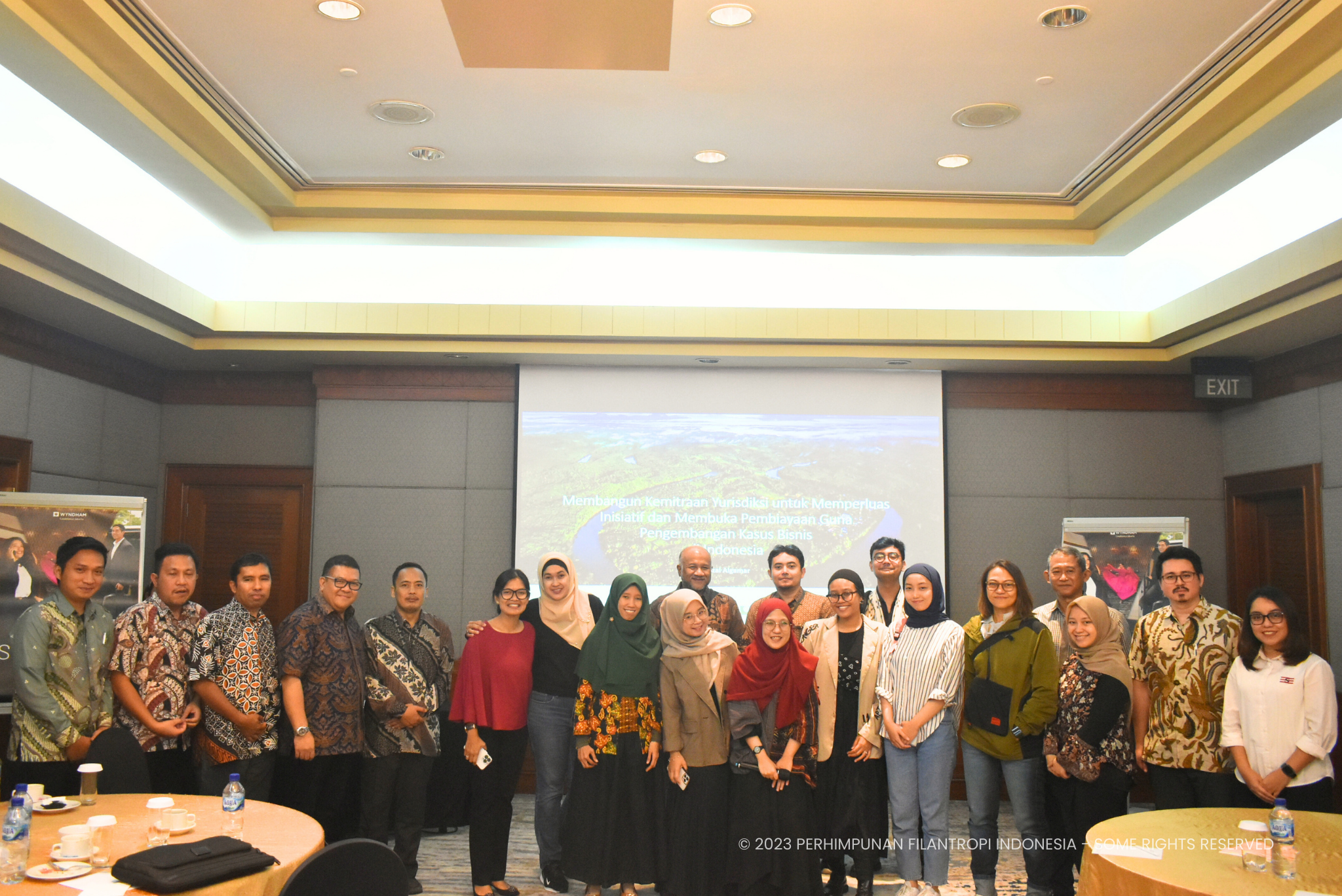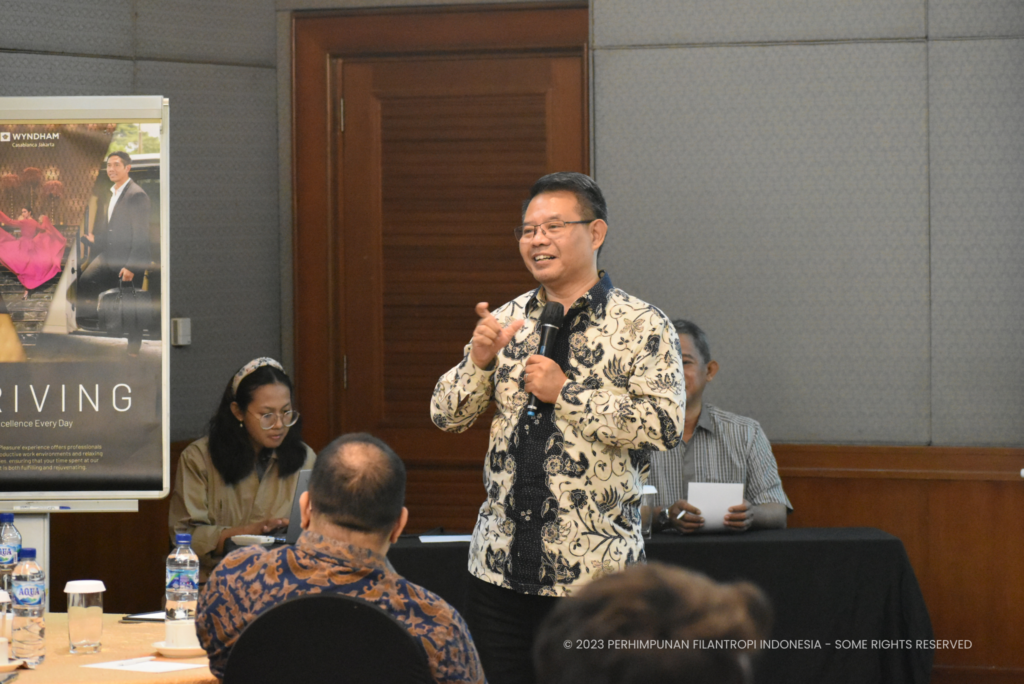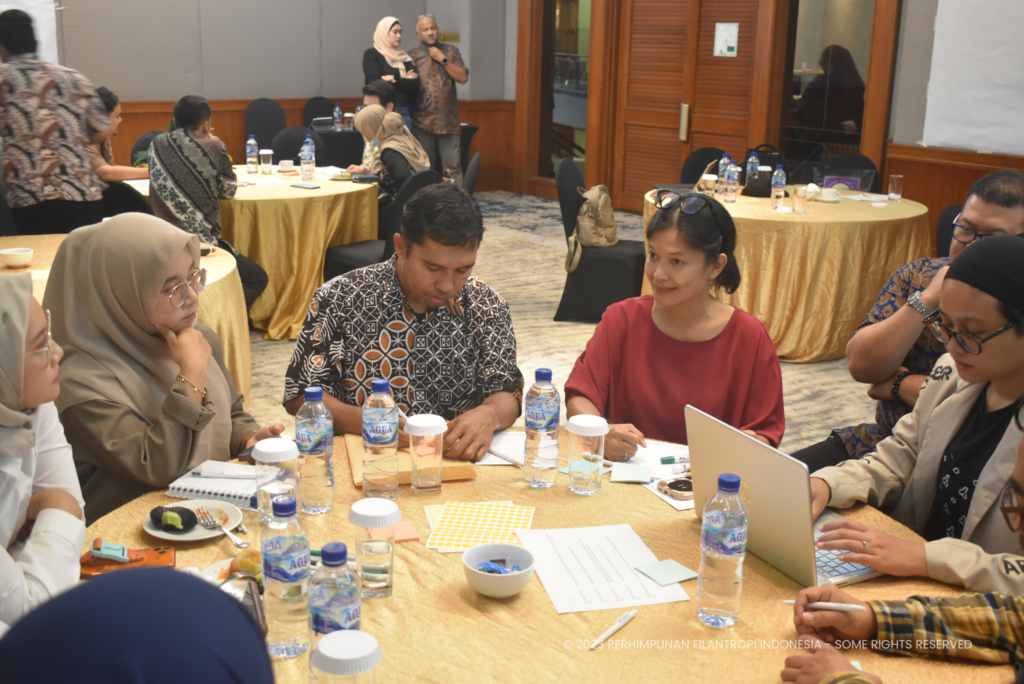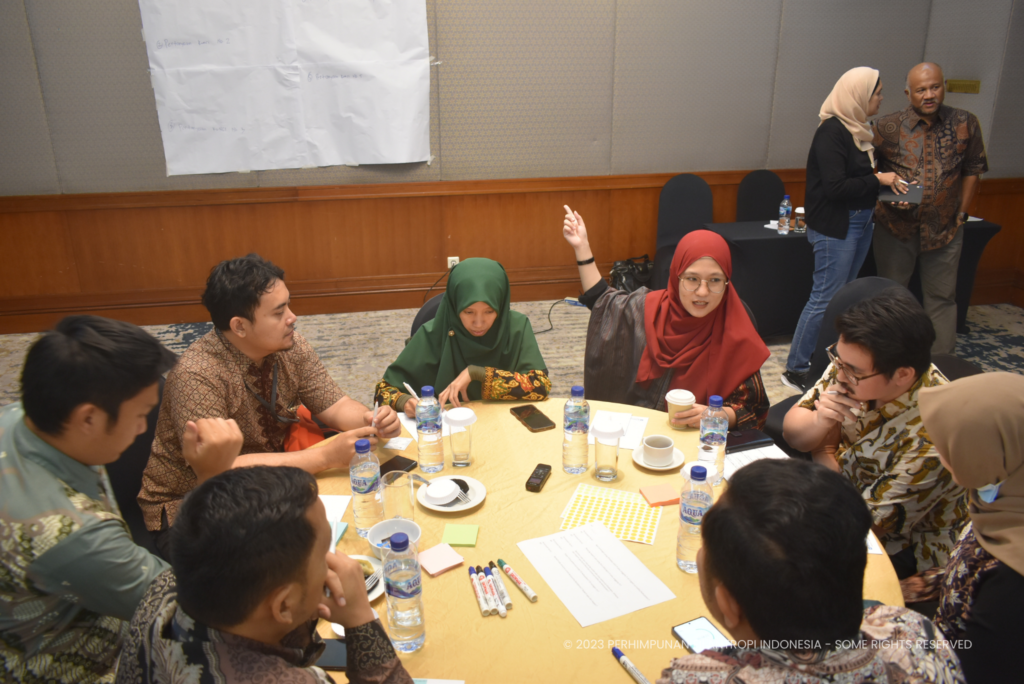Discussion on Partnership Development to Improve Social, Economic, Environmental, and Financing Initiatives at the Jurisdiction Level

Under the leadership of the district government, the Jurisdictional Approach emerged as a promising solution. It offers efficiency and effectiveness at scale by aligning the efforts of multiple stakeholders within jurisdictional boundaries. This approach aims to reconcile social, economic, and environmental competition to encourage cross-sectoral collaboration between government, business, philanthropy, development partners, investors, and society.
Governance challenges and issues include public officials’ political system and capacity, different measurement matrices to assess progress, innovative financing structures, and readiness for business model improvements. These were significant obstacles to achieving common economic, social, and environmental goals. Filantropi Indonesia, guided by partnership, equality, and justice principles, mobilizes its members to demonstrate impactful initiatives that contribute to social justice and sustainable development. These initiatives address various SDG actions, from multi-stakeholder partnerships to gender empowerment and climate action.
Based on this background, PFI collaborated with the Jurisdiction Collective Action Forum, held the 24th dialogue with the theme “Developing Partnerships to Improve Social, Economic, Environmental and Financing Initiatives at the Jurisdiction Level” on March 8, 2024, at Wyndham Casablanca Jakarta, South Jakarta. This forum aimed to inspire philanthropists and business actors to open measurable impact solutions at the subnational level to achieve the SDGs and the Climate Agenda through active involvement in the jurisdictional approach.
In his opening remarks, the Executive Director of Filantropi Indonesia, Gusman Yahya, said, “Integrative management of development solutions through collective action to address social, economic, and environmental challenges and achieve sustainable jurisdiction can be achieved through effective collective governance. It is also necessary to use a multi-stakeholder partnership approach that upholds the principles of equality and participation between all interested parties at the jurisdictional level, both government and non-government elements.”
Developing partnerships at the jurisdictional level was very relevant for philanthropy because it included rules, regulations, and laws that regulate various aspects of philanthropic activities. Philanthropy involves donating to social, educational, health, and other causes, and the legal landscape plays an essential role in ensuring that such philanthropic activities comply with applicable regulations and desired goals. In addition, developing partnerships at the district level can be very relevant for philanthropy because districts are government units close to the community and have a better understanding of local needs.

In his presentation, Rizal Algamar, Regional Director of the Tropical Forest Alliance (TFA), explained, “It is an honor for all of us to see stakeholders in Indonesia, especially from the government sector, who have succeeded in reducing the level of deforestation. With a vision for the next 100 years, Indonesia will become a global powerhouse for agricultural and extractive commodities. With palm oil currently producing around 57 million tons per year, the expectation is that 2045 it will be 100 million tons in a year. Interestingly, all developed countries have policies that direct the products they import to be free from deforestation, such as the UK with its due diligence and America with its Forest Act.”
The government recognizes the philanthropic community’s and CSOs’ role in contributing significantly to sustainable development, so this forum is an opportunity for all of us to collaborate with corporate partners in various jurisdictions. This forum opened up opportunities for collaboration and work to address environmental, social, and economic issues, which can be realized through co-creation and collaboration.


In his presentation, Agus Sari, Chief Executive Officer of Landscape Indonesia, explained that “The concept of the Jurisdictional Approach starts from sustainability. Sustainability is a concept where nature and the environment become important to development. Different from many people who think that development and the environment are opposites and compete with each other. Sustainable development consolidates development and the environment because, in the end, we cannot develop without a healthy environment, especially development at the sub-urban or rural level.”
An example of the success of this Jurisdictional Approach can be seen in Siak Riau. This district is relatively prosperous, with good governance and high social capital. Public trust in the district government is high where they believe that the regent and regional government need to play around; therefore, in Siak, a Regent’s Regulation regarding Jurisdictional Approach was issued, and a Regional Regulation further strengthened this through the DPRD. The private sector, of course, collaborates where a combination of commercial and non-commercial, private and profit institutions, private and philanthropic, government and philanthropic, all will produce the results we want.



